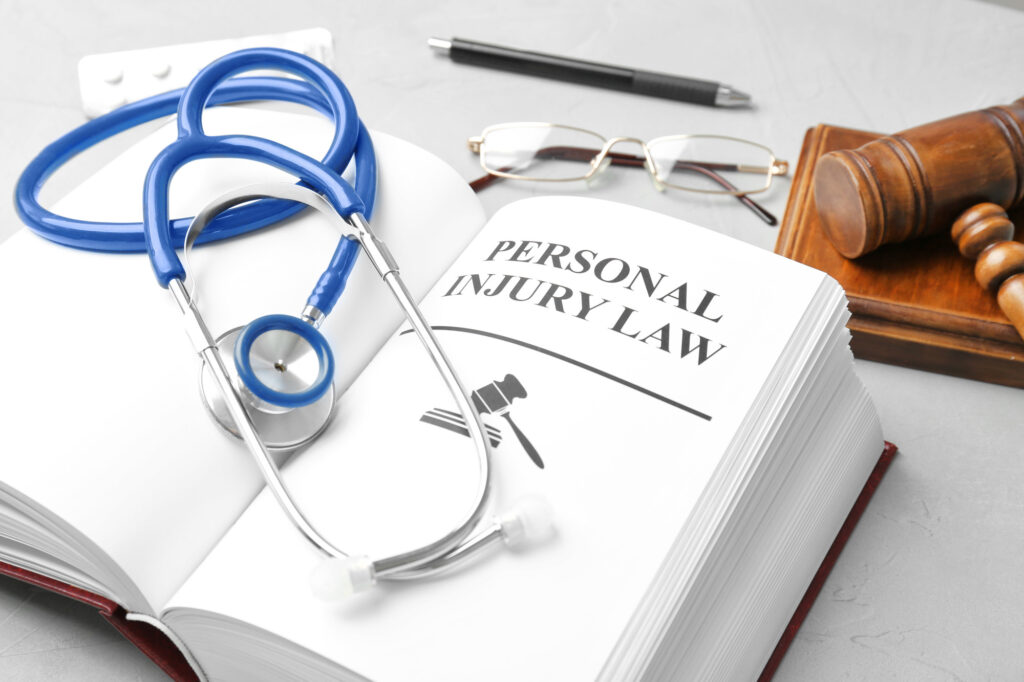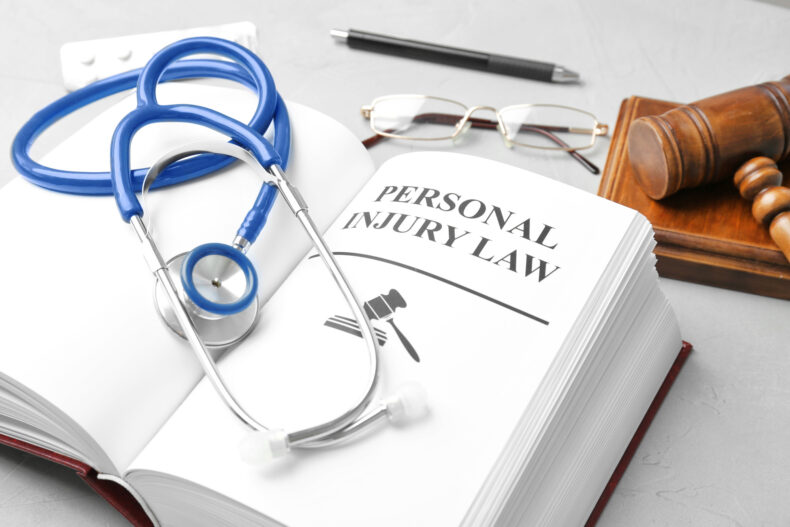Filing a Personal Injury Claim

An injury can change your life in a fraction of a second. When it happens due to someone else’s negligence, you may be entitled to compensation. To begin the legal process of holding the at-fault party accountable, you need to file a personal injury claim.
Read on to learn more about how to file a personal injury claim and get the settlement you’re entitled to.
Why File a Personal Injury Claim?
Personal injury claims provide justice for victims through the legal system. They often lead to a settlement, but there are other benefits too. Additionally, a personal injury claim empowers you to get what you deserve.
- Ensure Proper Medical Care: Many types of personal injury require extensive medical care. Without a settlement, victims are frequently left to deal with the expense themselves. In some cases, they cannot seek treatment due to prohibitive costs.
- Stop It From Happening Again: Simply knowing that one’s negligence hurt someone isn’t always enough to fix the problem. Filing a personal injury claim can prompt the defendant to be more careful in the future so as not to hurt someone else (and subsequently get sued for it).
- Hold Insurance Companies Accountable: Most cases involve insurance companies as opposed to individual defendants. These companies will fight tooth and nail to minimize your claim or otherwise avoid paying out. They are a for-profit business and must be held accountable when they agree to cover someone’s expenses.
1. Seek Treatment
If you received an injury from a recent auto-related incident, and you haven’t sought treatment yet, do so. Seeking treatment is primarily important for your own health and well-being. However, it’s also important for your case.
Some insurance companies will use a delay in the seeking of treatment to deny or limit their liability. They often argue that a delay in seeking treatment indicates that the injury wasn’t that bad or doesn’t exist at all.
2. Hire a Lawyer
The next, and no less important, step in the claim process is to obtain legal counsel. They will offer you personal injury claim advice that may help strengthen your case. No matter what you may hear, or how simple your claim might feel to you, never go without an attorney.
The legal process is complicated. However, a qualified lawyer can build a strong personal injury case. The insurance company knows this and has a team of lawyers working to minimize the company’s responsibility starting from day one. If you want a successful personal injury claim, an experienced attorney will be very beneficial.
3. Investigation
Once you’ve hired your attorney and signed the representation agreement, your legal representative can begin to investigate your case. They will collect evidence, ask questions, and obtain medical information pertinent to your claim. As the investigation goes on, you should continue to receive necessary medical treatment.
Just how long this part of the process takes depends on how much treatment you need and the complexity of your case. Any undocumented injuries or treatments that don’t show up on your medical records are not considered in your claim. If anything comes up, the cost will come out of your pocket. That’s why it’s important to receive necessary medical care before and during the claim process.
4. Make Your Demand
By now, you should have received medical treatment and your lawyer should have accumulated the necessary documentation to move your case forward. The information includes medical, employment, and investigation records.
At this point, your legal representation submits a settlement package and demand to the insurance company. A period of negotiation typically follows. Over this period, your lawyer and those of the insurance company will negotiate your settlement.
5. Your Lawsuit
In some situations, the insurance company’s (or other defendant’s) settlement offer is inadequate to resolve the claim. Or, there could be a strategic decision not to accept their initial offer. Regardless, you may file a personal injury lawsuit for your claim.
Filing a lawsuit doesn’t mean your case automatically goes to trial. Instead, it changes certain issues involved. For one, filing a claim empowers your attorney to request potentially sensitive information about the accident and the defendant. Sometimes this new information has a positive impact on the value of your claim.
During the discovery process, both your lawyer and the defendant’s lawyer will request information from one another. You may have to answer questions regarding these inquiries. Afterward, depositions will probably follow.
What Is a Deposition?
A deposition is where the opposing attorney gets to ask a witness questions while under oath. All of the witnesses’ testimony is recorded by a court reporter. Most often, depositions take place at your attorney’s office with them by your side.
6. Mediation Begins
All disputes that are not resolved through discussions and negotiations must go to mediation. Most of the time, mediations are ordered by the court. In a nutshell, mediation is an informal conference that is moderated by a third party – not your representation or that of the defendant.
The point of mediation is to help push both sides to agree on a settlement. When this happens, they draft a settlement agreement and sign it during mediation. They notify the court that you reached a settlement and then begin the steps of concluding the case. If no settlement is reached at mediation, the case goes to trial.
7. Trial
When all settlement efforts are for naught, the case moves on to trial. How long the trial lasts depends on how complex your case is. In addition, when it comes to motor vehicle injuries, the trials usually only last a few days. You will need to be there every day.
In civil court, the trial is decided by a 12-person jury. As long as your lawyer convinces at least 9 jurors to side with you, you win. The overwhelming majority of cases get settled out of court. Very few end up going to trial. When they do, it’s usually because the defendant disagrees with their culpability in your injury.
Need More Personal Injury Claim Advice?
Hopefully, this seven-step guide helps you understand how to file a personal injury claim. Receiving medical treatment is always paramount, as is immediately hiring a lawyer for your personal injury claim. If you wait too long on either one, you may hurt your case.
If you’d like to know more about filing a claim, contact us today.




